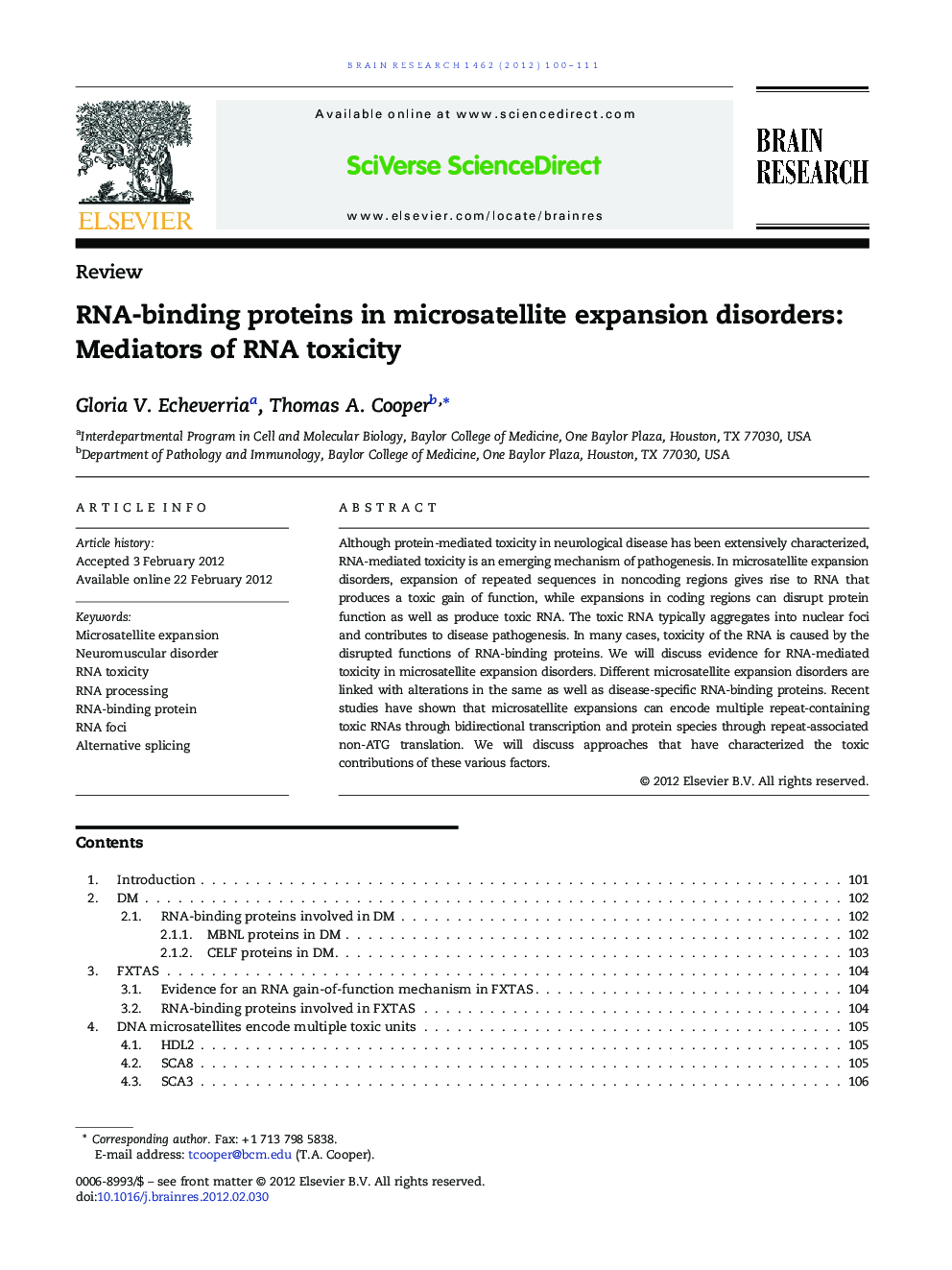| Article ID | Journal | Published Year | Pages | File Type |
|---|---|---|---|---|
| 6264307 | Brain Research | 2012 | 12 Pages |
Although protein-mediated toxicity in neurological disease has been extensively characterized, RNA-mediated toxicity is an emerging mechanism of pathogenesis. In microsatellite expansion disorders, expansion of repeated sequences in noncoding regions gives rise to RNA that produces a toxic gain of function, while expansions in coding regions can disrupt protein function as well as produce toxic RNA. The toxic RNA typically aggregates into nuclear foci and contributes to disease pathogenesis. In many cases, toxicity of the RNA is caused by the disrupted functions of RNA-binding proteins. We will discuss evidence for RNA-mediated toxicity in microsatellite expansion disorders. Different microsatellite expansion disorders are linked with alterations in the same as well as disease-specific RNA-binding proteins. Recent studies have shown that microsatellite expansions can encode multiple repeat-containing toxic RNAs through bidirectional transcription and protein species through repeat-associated non-ATG translation. We will discuss approaches that have characterized the toxic contributions of these various factors.
⺠Toxic RNA expansions are emerging pathogenic factors in neuromuscular diseases. ⺠Nuclear foci containing expanded RNA are hallmarks of RNA-toxic disorders. ⺠RNA expansions are known to disrupt RNA-binding protein function.
